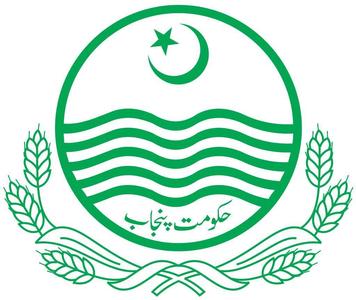
In 2024, the Punjab government introduced various policies for improving governance , improving the economy, and addressing public grievances. The year 2024, has been critical for development in sectors such as education, healthcare, agriculture, and infrastructure. In this blog, we will break down some of the significant policies and the direction in which Punjab is heading.
Education
Throughout the year 2024, one of the key focuses of the Punjab government is on education. The government allocated PKR 150 billion. The fund was allocated to improve schools, hire more teachers, and upgrade facilities. Over 10,000 new teaching positions were created, and 500 schools were equipped with modern science and computer labs. New scholarship programs were introduced to students from low-income families. The emphasis was also placed on digital education by providing 50,000 tablets and online learning platforms to public schools.
Healthcare
The Punjab government expanded hospitals and clinics in rural areas to ensure that people have access to medical services. PKR 120 billion was allocated for healthcare. 30 new hospitals are under construction and 200 mobile health units are deployed across undeveloped areas. Free medical camps were set up across the province. Two million people benefited from medical camps and from mobile health units.
Agricultural Initiatives
The government introduced new policies to support farmers. PKR 80 billion was set aside for agricultural subsidies, including discounts on fertilizers, seeds, and pesticides.100,000 farmers were enrolled in agricultural training programs to learn modern farming techniques and efficient use of water. Additionally, the government launched a PKR 10 billion irrigation project to combat water scarcity.
Infrastructure Development
The Punjab government launched several infrastructure projects. PKR 200 billion was invested in infrastructure for the construction of 1,500 km of new roads and 20 major bridges. A new metro bus line connecting key industrial zones was also initiated to improve urban mobility.
Social Welfare Programs
The government introduced various social welfare programs, such as cash assistance for low-income families and vocational training for unemployed youth. PKR 50 billion was allocated for social welfare initiatives, benefiting over 3 million people. Women empowerment programs were also launched, with 200,000 women receiving skill development training to encourage female participation in the workforce.
Evaluation
The Punjab government’s policies in 2024 show a strong commitment to improving education, healthcare, agriculture, infrastructure, and social welfare. These efforts aim to address public needs, reduce inequality, and support long-term growth.
On the positive side, investing heavily in education and healthcare shows the government understands their importance. Programs like scholarships, digital tools for learning, mobile health units, and free medical camps reflect a people-focused approach. Similarly, support for farmers through subsidies, training, and water management programs highlights an effort to strengthen agriculture, which is vital for Punjab. New roads, bridges, and metro lines aim to boost connectivity and economic opportunities.
However, there are concerns about how well these plans will be implemented and whether the funds will be used effectively. For example, while large amounts of money have been allocated, past issues with corruption and inefficiency raise doubts about whether these resources will reach the people who need them.
Another issue is the lack of proper monitoring systems to check if these initiatives are working as intended. For instance, while new teaching positions and digital education tools are positive, ensuring equal access and high-quality teaching will be a challenge. Similarly, the success of healthcare and agriculture programs will depend on proper training, timely delivery of resources, and community participation.
About Author: Dr. Khadeeja Imran is the Executive Editor of Country Today, holds a PhD in Hydro-politics, and is a prominent political analyst of Pakistan. She can be reached at [email protected].





